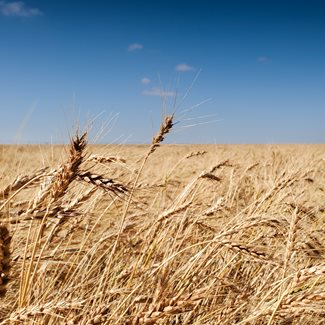September 2019 Key Discussion Points
Sep 04, 2019

Wheat Variety Selection and Seed Treatments
Fall planting season is quickly approaching. The Great Bend Co-op Seed Department offers several fantastic Certified Wheat varieties for your operation. We tend to take a lot of time selecting our hybrids for corn and soybeans, but have you thought much about wheat seed placement on your farm? Variables such as soil pH, crop rotation, field disease history, field weed history, and end use should be considered when selecting your wheat variety. For example, perhaps you have a low pH soil with a history of cheat or volunteer rye. In this situation you would want to look for a variety that is tolerant to acidic soils and contains a herbicide tolerance trait that would allow you to spray a grass selective herbicide during the growing season.Seed treatments can also play an important role in getting a great start to your 2020 crop. Whether you are treating Certified Seed Wheat or cleaned bin-run seed wheat, it is important to protect your wheat from early disease and insect pressure. Warden Cereals WR II® seed treatment is a great choice as it has both the fungicide and insecticide included in one product. Early root and shoot growth play a key role in not only putting on plant tillers, but also helping with winter hardiness. Ascend®, a growth regulator, and Quick Roots®, Penicillium Balaii, are seed treatments that can help stimulate and improve early season root and shoot growth.
Fall Armyworms in Early Planted Rye and Wheat
Warm temperatures and healthy crops can favor the increase in Fall Armyworm presence in early planted cereal crops. As corn and soybeans begin to mature, armyworms will begin to migrate toward the next food supply. Healthy small grains such as early planted rye and wheat for grazing tend to be very inviting for the armyworms. Scouting for Fall Armyworm is important, as they can wipe out large areas in a short amount of time.Cheat Control with Olympus® or Clearfield® Wheat
Last Fall’s thin wheat stands followed by abundant rains this Spring created amazing growing conditions for downy brome, aka cheat, in 2019. Although post treatments are available, the control of cheat in wheat is a challenge. If you have fields that you know are going to have a cheat problem, consider looking at your variety choice first. The Clearfield® system works very well on cheat. This program requires the use of a Clearfield® variety of wheat, along with Beyond® Herbicide. With this approach, Beyond® is applied as needed in the Fall when the wheat reaches a minimum growth stage, and then applied a second time in the Spring.Olympus® offers a planned approach to cheat control in a non-Clearfield® wheat system. Olympus® is applied in the Fall immediately after planting, but before the wheat emerges. This is similar to our PRE applications in row crops. This approach requires a follow up application in the Fall or Spring, depending upon cheat pressure. Olympus® does require an incorporating rain to work as a PRE product.
Speak with our Agronomy staff today to help determine which program will fit best on your operation.